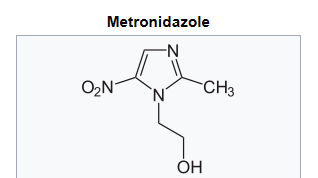The simplest one (probably) is used to treat methanol poisoning.
A five-sided, two-nitrogen ring of a different sort here:
A more common antifungal appears below. The clover shape of the benzene and azole rings is something I don't see often.
Another azole medicine I found with chlorine is below.
There are similarities between itraconazole, an antifungal and sonidegib, an anticancer drug. Sonidegib is also a hedgehog signaling pathway inhibitor. Another fun fact:
***
Sonic hedgehog protein (SHH) is encoded for by the SHH gene.[5] The protein is named after the character Sonic the Hedgehog.
***
Further down the Wikipedia hole, I found:
***
The function of the hedgehog segment polarity gene has been studied for influence on the normally polarized distribution of larval cuticular denticles as well as features on adult appendages such as legs and antennae.[7] Rather than the normal pattern of denticles, hedgehog mutant larvae tend to have "solid lawns" of denticles (Figure 1). The appearance of the stubby and "hairy" larvae inspired the name 'hedgehog'.
***
It's interesting that heartburn medicine is the result of studying how butterfly larvae develop. It's impossible to predict what scientific knowledge be useful.
The above are truncated forms of a proton pump inhibitor. Note the heterocyclic part. Other PPI drugs appear below. Some treat acid reflux disease. Others kill parasitic worms.
Here are two with sulfur.















No comments:
Post a Comment